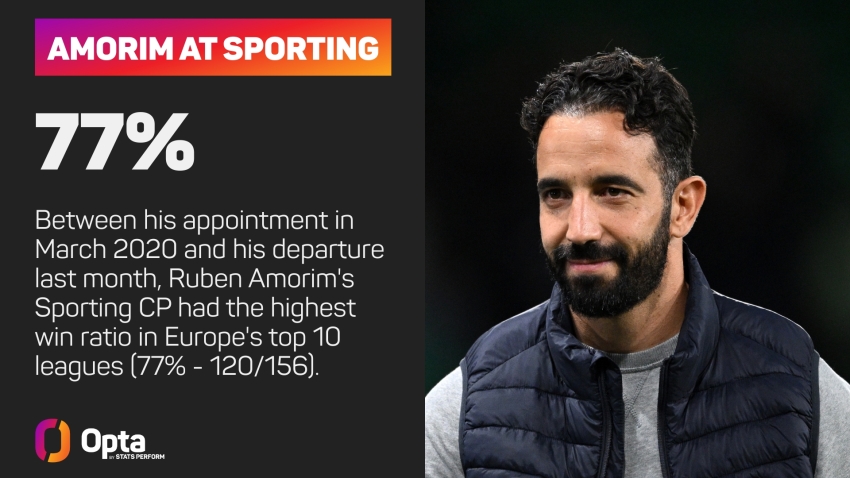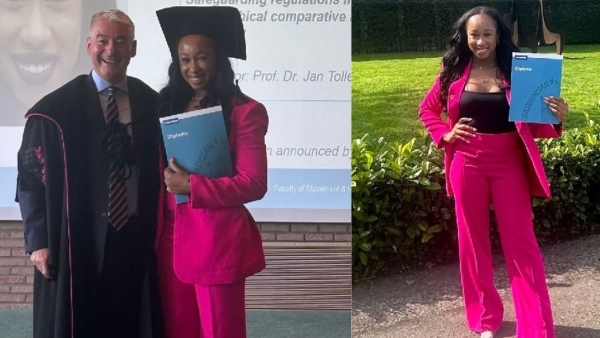Jamaican Olympian Toni-Ann Williams has achieved a remarkable milestone by obtaining her Master's Degree in Ethics and Integrity, with distinction, a significant feat made possible through an Olympic Solidarity Scholarship provided by the Jamaica Olympic Association.
Having pursued her postgraduate degree at renowned institutions across Europe, including Ku Leuven in Belgium, Charles University in Prague, the University of Peloponnese in Greece, the University of Pompeu Fabra in Barcelona, Spain, and the Johannes Gutenberg-Universität in Mainz, Germany, Williams absorbed diverse cultures and communities throughout her academic journey.
"Being able to adapt and integrate myself into different communities and cultures was really exciting," said a grateful Williams whose post-graduate thesis was themed “Safeguarding regulations in American collegiate sport: Ethical comparative analysis of Title IX and SafeSport.
The now 27-year-old athlete, who made history in 2016 as the first gymnast to represent Jamaica at the Rio Olympic Games, embarked on this academic journey with determination, studying various aspects of sports ethics and integrity.
Reflecting on her two-year educational odyssey, Williams expressed immense fulfillment, stating, "It was very fulfilling. I'm very excited to be able to celebrate two years of hard work to accomplish this master's degree." She underscored the critical importance of studying sports ethics and integrity, given the myriad decisions and governance challenges that pervade the sporting world.
A graduate in Legal Studies and Social Welfare from the University of California, Berkeley, in Europe Williams delved deep into topics such as anti-doping policies, ethical considerations, safeguarding, corruption, and betting within the realm of sports. Her scholarly endeavors were fueled by a desire to effect positive change in the sporting arena, particularly in gymnastics and her native Jamaica.
“Being able to bring that back to not only gymnastics, but to Jamaica and how I can bring positive change to the sporting world for everybody, it was really fulfilling to be able to accomplish something like this, especially within a program overseas,” she said.
“Never living in Europe for the, you know, ever, and being able to put myself into a new culture and community, it's really fulfilling to be able to accomplish something like this."
One of the most rewarding aspects of her program was the opportunity to connect with individuals passionate about sports and ethics from around the world, expanding her network and forming valuable friendships. "I got to meet so many great people, so many smart, intelligent, important people," Williams remarked.
However, her academic journey was not without its challenges, as she navigated the complexities of studying in different countries every six months, requiring meticulous planning and organization.
"I think the most challenging part about the program is, as I mentioned, is being is traveling to different cultures and communities and countries every six months.
"It's tough because alongside studying in academia, um, you're also having to be a travel agent. You're having to sort out your own visa, your accommodation, your flights and plan everything well in advance on top of studying and reading and doing all these things for research.
“So this is a very unique part about this program and probably was the most difficult and more mentally draining. And I think that's what makes it super unique and it made it really challenging but it has taught me so many skills that I can bring now into my life in terms of being able to multi-task in project management and do all sorts of things like that.”
Her academic journey also equipped her with the tools and perspective to drive positive change, and she is committed to fostering a more empathetic and understanding sporting environment that transcends stereotypes and celebrates diversity.
“I think the most eye-opening thing was understanding that there are stereotypes and that people also come with stereotypes about you being Jamaican with an American accent definitely raises a lot of questions,” she revealed.
"And being able to be empathetic and understanding and also encouraging other people to be empathetic and understanding and to understand that you're not your stereotype or who people think you are, or judging a book by its cover.
“Being able to be empathetic and being respectful when in other people's countries and understanding their differences and celebrating it. I think that's something I feel like I've learned.”
Now armed with a wealth of knowledge and experience, Williams has taken up a position with LA28, the organizing committee for the 2028 Olympic and Paralympic Games to be hosted in Los Angeles, California. As part of the athlete fellowship program, Williams contributes to LA28's initiative to provide athletes with a more prominent voice within the organization of the Olympic Games.
In her role within the community relations department, Williams is focused on enhancing community preparedness for the international influx that accompanies the Olympic Games. She is actively involved in initiatives to bolster youth sports, engage local businesses in decision-making processes, and strengthen the bonds between the Olympic Games and the Los Angeles community.
Williams is optimistic about the future and her ability to contribute to the development of sports, particularly gymnastics, in Jamaica. She emphasized the importance of ethical governance, transparency, accountability, and athlete-centered leadership in building a stronger foundation for the sport.
"I think in many ways I can help gymnastics in Jamaica, and not just gymnastics but other sports, but specifically for gymnastics, understanding, learning about governance and the ethics behind governance and transparency and accountability and how ethical leadership could can conduct themselves in order to be more athlete centered," she concluded.
"And I think we can help build a stronger organization and association for gymnastics, have a stronger foundation, give athletes what they need to thrive mentally and physically. I know it's not going to be immediate help right now, but it's something that can be built over the years and I think we need to start with a strong foundation to be able to build upon and be able to have a better sport for Jamaica.”





























